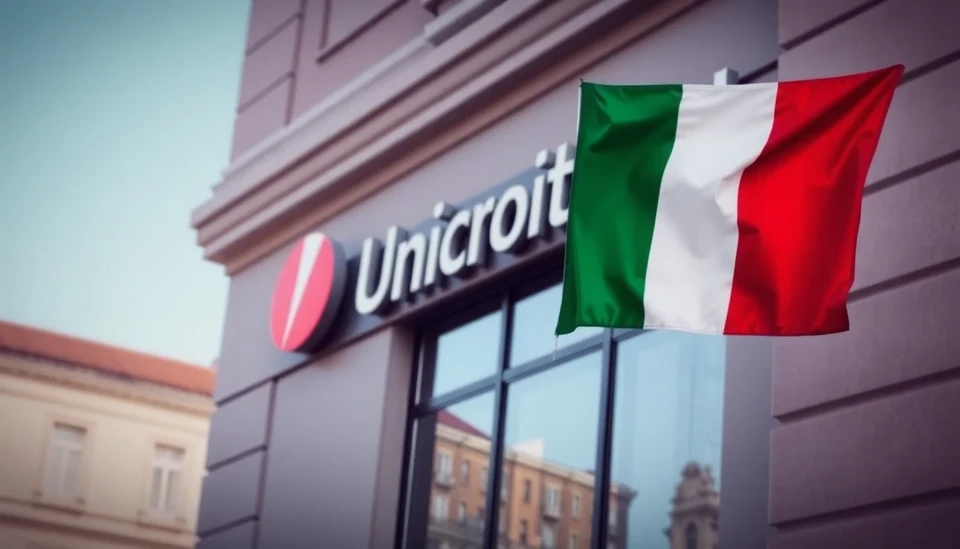
In a significant development within Italy’s banking landscape, Unicredit has taken the proactive step of notifying the Italian government about its plans to make a bid for Banco BPM. This move comes amidst a flurry of activity in the European banking sector, where competition and consolidation efforts are gaining momentum. The announcement marks Unicredit's strategic intention to enhance its holdings and potentially reshape the dynamics of Italy's financial institutions.
Unicredit, which is one of Italy's largest banks, is reportedly keen on expanding its operations and footprint through this acquisition. By alerting the government in advance, Unicredit is navigating the regulatory landscape carefully, ensuring that all due protocols are followed before a formal bid is placed. This strategy indicates a level of transparency and an understanding of the complex regulatory environment that exists within the European Union's banking framework.
Banco BPM, formed from the merger of Banco Popolare and Banca Popolare di Milano in 2017, has been a critical player in the national banking scene. The institution has shown resilience amid shifting market conditions, but it is clear that larger players like Unicredit are looking to capitalize on potential synergies and operational efficiencies that could arise from such a merger.
Market reactions have already begun to surface, with analysts weighing the implications of this news. The potential bid could trigger a ripple effect within the market, prompting other banks to reassess their positions and strategies. Such consolidation in the banking sector is not just a local phenomenon; it resonates across the entire European market, as institutions grapple with evolving regulatory standards and the necessity of larger capital bases in the face of growing challenges.
While details of the financial terms or offer specifics remain closely guarded, industry experts believe that, if successful, the acquisition could lead to a broader restructuring of Italy’s financial sector, enhancing competitiveness and operational scale. The integration of Banco BPM's assets with Unicredit’s could also foster innovations in services and products offered to consumers.
As the situation unfolds, both public and private stakeholders will be paying close attention to further communications from Unicredit and any responses from Banco BPM's leadership. Given that the banking sector is highly sensitive to shifts in governance and investor sentiment, this scenario could become a focal point in discussions regarding the future of Italian and European banking.
In conclusion, Unicredit's advance notification to the government highlights both the significance of this potential acquisition and the intricate web of relationships between banking institutions and regulatory bodies in Italy. If negotiations proceed, it could mark a transformative period for banking in Italy, capturing the interest of investors, analysts, and consumers alike.
<>#> #Unicredit #BancoBPM #ItalianBanking #BankingConsolidation #InvestmentNews #FinancialSector #<
Author: Samuel Brooks




